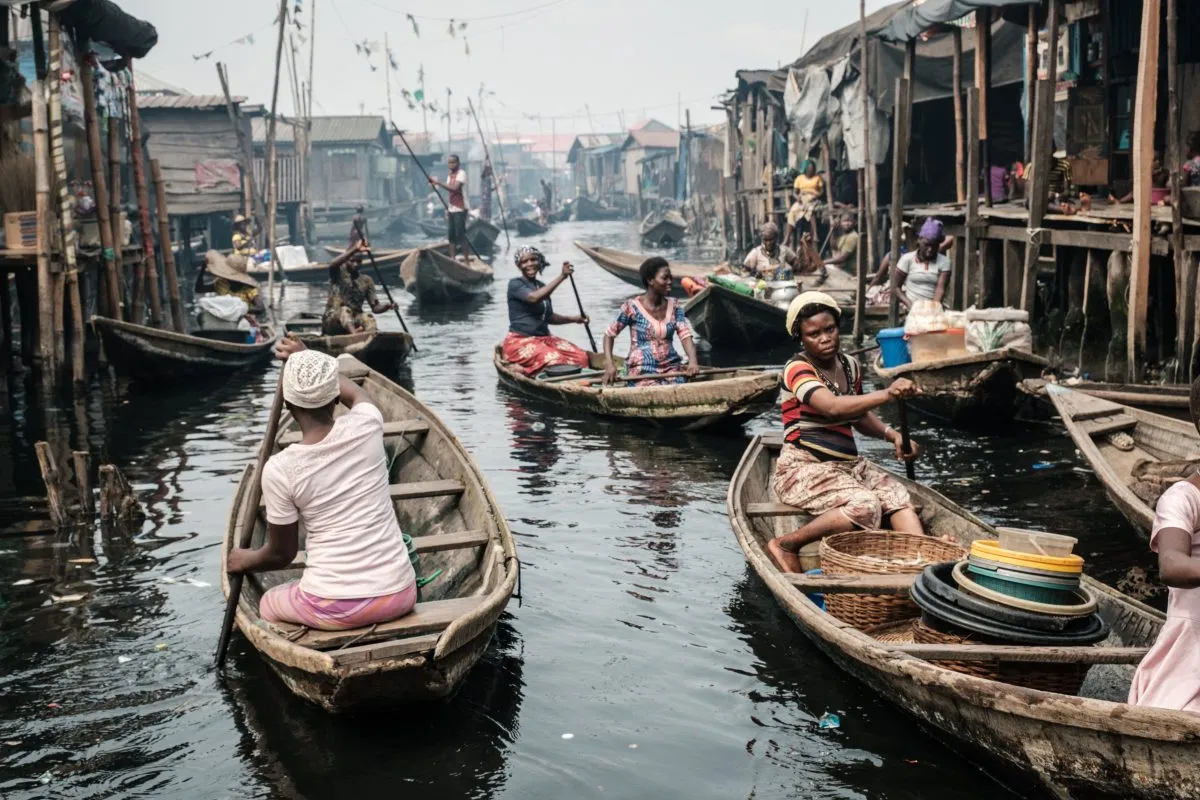This book “is about places that once felt prosperous but now have fallen behind. They are found all over the world, even in rich countries that have poor regions.” These are the opening words of Paul Collier’s Left Behind. Collier hails from the city of Sheffield in the UK’s county of South Yorkshire, and describes it as an example of a place “left behind” in a prosperous country.
Whole countries have been “left behind”, many in Africa, such as Somalia, the Central Africa Republic and even Malawi – and the causes are many and varied. In Malawi, it was corruption that contributed – as shown in the chapter “Small is not always beautiful.”
He writes: “Once an autocracy, in 1995 Malawians ousted their aged ruler, who had been in power for 28 years. It became a multiparty democracy: as one of the poorest new democracies in the world, it began to attract large aid inflows.”
A seemingly petty change
Collier laments: “As a despairing former head of the civil service explained to me, with democracy came one, seemingly petty, change in the line of accountability.
“The top civil servants in each ministry – the permanent secretaries who authorised spending decisions – had previously reported to their counterpart in the Ministry of Finance. Now they reported only to their minister. The change in accountability had profound consequences: a minister who wished to do so could now plunder the ministry’s budget.”
As the author comments: “A sad lesson from Malawi’s experience is that although its incumbent presidents have regularly been defeated, their removal has not impeded patronage politics: electoral democracy is not a sufficient condition for an inclusive state.”
This raises the question: if electoral democracy is not a “sufficient condition for an inclusive state”, what is?
Collier attempts to answer this by turning his gaze to countries he deems successful, such as Rwanda.He suggests that the key to developing an inclusive state lies in leadership, describing in detail how Rwanda’s President Paul Kagame put together “teams of clever, motivated public servants [that] had evolved integrated, long-horizon strategies for healthcare, land rights and tourism”.
African solutions to African problems
Later in the book, Collier returns to commending Kagame over his 2021 decision to send 1,000 Rwandan soldiers to northern Mozambique to successfully repel an ISIL incursion. ISIL, an Islamist terror group, had its eyes on a giant gas field that had been found offshore.
Kagame claimed that this action was motivated by pan-African solidarity and he refused any payment. Advocates insist that this small Rwandan force was so effective that within three months the ISIL fighters had not just been beaten, but had surrendered.
Collier quotes Louisa Lombard, a Yale anthropologist researching Rwanda’s peacekeepers. She described Rwandan soldiers as being among the most disciplined and least corrupt of all African missions.
And Collier adds in a footnote: “I have direct experience of President Kagame’s process of hierarchical accountability, since he extended it from the army itself to all the key public institutions.
“Each year he summoned the top 200 public officials to an army camp for three days, at which each person had to stand up and account for their performance against an agreed benchmark.
“As his guest, I was impressed that we all ate the same army food and slept in the same army tents: Kagame had visibly earned the right to say ‘we’ to his troops.”
Nevertheless, recent violence in the east of the Democratic Republic of Congo (DRC) has once again turned the spotlight on Rwanda’s involvement and its backing (strongly denied) of the M23 militia. Critics believe that Rwanda, with the assistance of M23, is extracting valuable mineral resources from the neighbouring DRC. Meanwhile, the president secured a staggering 99% of the vote in the country’s July election.
A victim of neighbours’ circumstances
Returning to Collier’s impressive book: the “left behind” countries of Africa include Mali. Fifteen years ago it was considered a peaceful democracy, though Collier suggests it was a cleverly-disguised predatory state. Then it became a victim of its neighbours’ circumstances. Essentially, Libya’s ruler Muammar Gaddafi was facing a rising tide of opposition and took the decision to employ mercenaries from the Sahel.
When the inevitable happened and Gaddafi fell from power, the mercenaries plundered weapons from Libya’s national armouries and returned southwards to their own countries to wage an uprising.
Mali’s government appealed to the French for military support. The former colonial power agreed. Collier writes: “The French air force swept in, bombed the gangs and established a large air and army presence of 5,000 troops.
“But as French casualties mounted, French public opinion turned against the operation: in 2021 President Macron halved the force.”
Although Collier does not broach the subject, there had been a history of tensions between the Tuareg northern separatists (who, along with the Malian army, had borne the brunt of the Islamist onslaught) and the Mali government.
“Following two military coups in quick succession, the unrecognised military government whipped up anti-French sentiment and ordered their forces to leave the country, along with newly-arrived British and Danish support.
“In desperation, Mali’s new rulers turned to the Russians for protection, specifically Yevgeny Prigozhin’s Wagner mercenary company, and swiftly became his satraps.” That is how Mali became a left-behind nation. While Collier’s narrative regarding the descent into “left behind” status is useful for the development economist, even more useful are the rare examples Collier cites of regions and countries that have escaped that trap.
He says that winning the trust of the citizens of Pittsburgh in the US was vital to the strategy of revival of the city.
Collier had compared Pittsburgh to his home city of Sheffield. Both cities had suffered steep declines in their fortunes, becoming left behind when their core industries – coal and steel – both collapsed and unemployment skyrocketed.
As Collier puts it: “Pittsburgh collapsed, but the city then attracted new high-skill firms; South Yorkshire’s steel collapsed and the area failed to attract replacements.”
The fallacies of free-market fundamentalism
Ceasing to be left-behind involves economics at least as much as the governance issues mentioned above. Collier is well-placed to discuss both, as professor of economics and public policy at the Blavatnik School of Government and a fellow of St Antony’s College, Oxford, UK. From 1998 to 2003 he took public service leave to be director of the research development department of the World Bank. He is currently a professeur invité at Sciences Po (the Paris Institute of Political Studies) and a director of the International Growth Centre, which is based at the London School of Economics.
While the reasons for countries becoming left behind are diverse, Collier’s central thesis is that free-market fundamentalism, “the market knows best” theories propounded by the likes of Chicago economist Milton Friedman, almost always worsen the problems. This is illustrated by the experience of East Germany and its reunification with West Germany.
Germany’s then chancellor, Helmut Kohl, recognised that market forces would not revive East Germany, for so long under the yoke of the Soviet Union.
Instead, Kohl instituted a “solidarity tax” that, Collier says, saw some €70bn of the wealth of West Germany redistributed – each year for 30 years – to East Germany to rebuild infrastructure and enterprise.
Not all left-behind regions and countries have the good fortune of a wealthy neighbour. But the German experience certainly offers a valuable lesson that a reliance on the market is foolhardy.
Want to continue reading? Subscribe today.
You've read all your free articles for this month! Subscribe now to enjoy full access to our content.
Digital Monthly
£8.00 / month
Receive full unlimited access to our articles, opinions, podcasts and more.
Digital Yearly
£70.00 / year
Our best value offer - save £26 and gain access to all of our digital content for an entire year!

 Sign in with Google
Sign in with Google 



